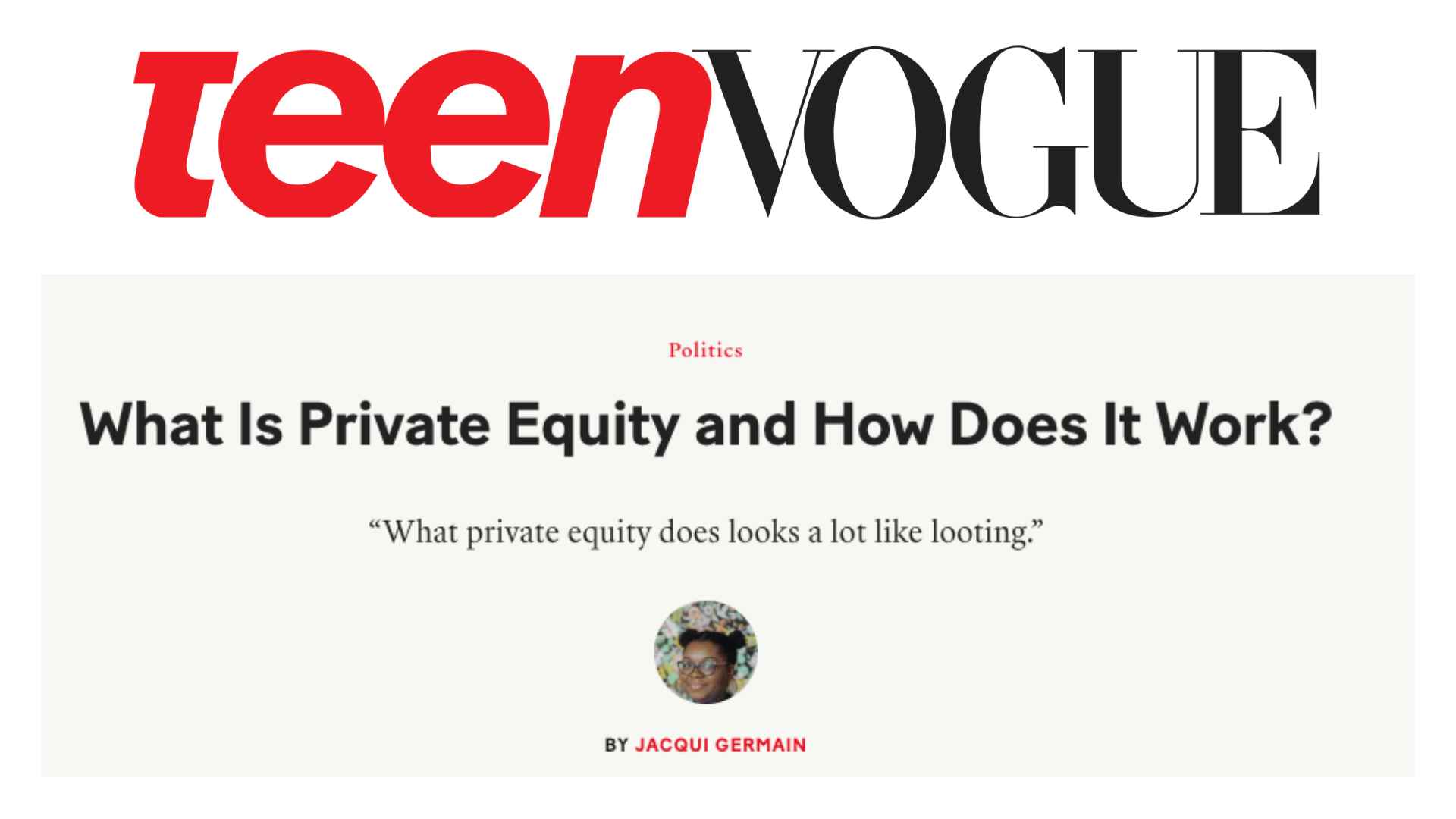
Teen Vogue : What Is Private Equity and How Does It Work?
October 20, 2023
Last month, Teen Vogue published a story explaining the private equity industry and the sectors in which PE firms invest. The private equity industry, known for its leveraged buyout practices, is criticized for prioritizing profit over the well-being of purchased companies and their workers. Private equity firms, managing funds from various sources, aim to buy and sell companies for profit, with little transparency. They often take on debt using the acquired company’s assets as collateral, placing the financial risk on the purchased company. This approach can lead to excessive debt burdens and poor management.
Teen Vogue September 8, 2023: What Is Private Equity and How Does It Work?
Private equity has expanded its influence in various sectors, including healthcare and housing, where profit-focused cost-cutting measures can have detrimental effects on essential services. Examples include staff reductions, neglecting building maintenance, and pushing for unnecessary medical procedures.
“Their priority is increasing cash flow at whatever cost,” Eileen O’Grady, PESP health care research and campaigns director, told Teen Vogue. “For health care, we’ve seen that mean cutting staff, reducing less profitable services at hospitals — that might be labor and delivery services or pediatric services — or finding other ways to strip assets out of health care providers to achieve those high returns.”
“I have met with many nurses’ unions who are very, very worried about their ability to care for patients when private equity firms come in and say, ‘We need to cut staff because we need to cut costs because our profits are not high enough,’” O’Grady also said. “They may not have enough supplies, resources, or time to care for those patients. That means those patients are endangered. It means the staff are overworked. So it is a profound labor concern because not only are their jobs getting worse, they’re no longer able to do the thing they want to do, which is care for people and provide quality health care.”
Teen Vogue also focused on how private equity is expanding its housing investments, “purchasing single- and multifamily homes and buildings, student housing, affordable housing, and manufactured housing parks, also known as mobile-home parks.” In the housing sector, private equity firms often increase rents, exploit tenants with fees, and illegally evict people to maximize profits.
“Often that means they are deferring maintenance in combination with trying to get more revenue,” said Mad Bankson, PESP housing researcher. “One way they really do that is through junk fees. They’ll pass charges on to tenants that are made up or not something a tenant normally pays for. It can be anything from lawn maintenance to charging $75 to have someone come and take a look at something that’s wrong with your house, even if it’s something that by your lease or state law is supposed to be fixed by [the property owners].”
“There was a congressional investigation that found that major private equity-connected corporate landlords were illegally evicting people throughout the pandemic,” Bankson also said. “And the reason they do that is either to collect fees from people or force them out to get a tenant who can [afford] raised rent.”
Efforts to regulate the private equity industry include the Stop Wall Street Looting Act (SWSLA), which aims to hold private equity firms accountable for debt they incur and improve financial transparency. The SEC has also made some transparency-related changes, but concerns remain about concessions favoring private equity firms. Critics argue that while there may be situations where private equity is beneficial, the industry often prioritizes the interests of the wealthy over the well-being of companies and their employees.
